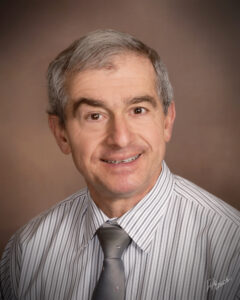With a membership of 50 rheumatology professionals, including doctors, physician assistants and nurse practitioners, the Wisconsin Rheumatology Association (WRA) is commemorating its 16th anniversary this year. The organization existed as a loosely organized annual gathering of a handful of rheumatologists until 2005, when a more formal charter was executed.

Dr. Daniel Malone
Daniel G. Malone, MD, RMSK, FACR, clinical associate professor of medicine-rheumatology at the Medical College of Wisconsin in Milwaukee, rheumatologist in the Prairie Ridge Clinic of the Columbus Community Hospital, has been president of the WRA for the past seven years. Kurt Oelke, MD, and Alvin Wells, MD, PhD, are WRA’s other executive officers.
According to Dr. Malone, the WRA works with WJ Weiser & Associates, an Illinois-based association management company, to coordinate meetings and secure speakers and sponsors.
Addressing the Rheumatologist Shortage
Like many states, Wisconsin struggles with having enough rheumatologists to treat patients. The state has about 80 rheumatologists in active practice, and the Department of Health Services reports 1.1 million adults in the state are living with arthritis.
“A lot of specialists are retiring, so it’s an ongoing challenge to ensure all patients get the services they need,” Dr. Malone says.
Most rheumatologists in Wisconsin practice in urban areas, leading to a shortage of specialists in rural regions, Dr. Malone says. According to the University of Wisconsin, Madison, 28% of the state’s residents live in rural areas, but only 11% of physicians have rural practices.¹
The Medical College of Wisconsin rheumatology fellowship program is one entity working to help increase the number of rheumatologists in the state. The University of Wisconsin School of Medicine & Public Health and the state’s health systems are also working to develop residency programs in rural areas. “There are currently seven fellows in adult rheumatology and seven in pediatrics in Wisconsin,” Dr. Malone says. All medical students, residents and fellows are invited to WRA meetings with complimentary registration.
The Wisconsin Office of Rural Health also offers doctors and dentists money to help pay off student debt in return for three years of work in areas of the state facing shortages.
During the pandemic, many physicians, including rheumatologists, began using telemedicine to offer virtual visits as an alternative to in-person visits. The technology is also being considered as a way to conduct rheumatology follow-up visits for older patients and those who live in remote, rural areas.
One example of this is the telerheumatology program at William S. Middleton Memorial Veterans Hospital, Madison, where rheumatology patients have an initial in-person evaluation but can choose virtual follow-up appointments.


